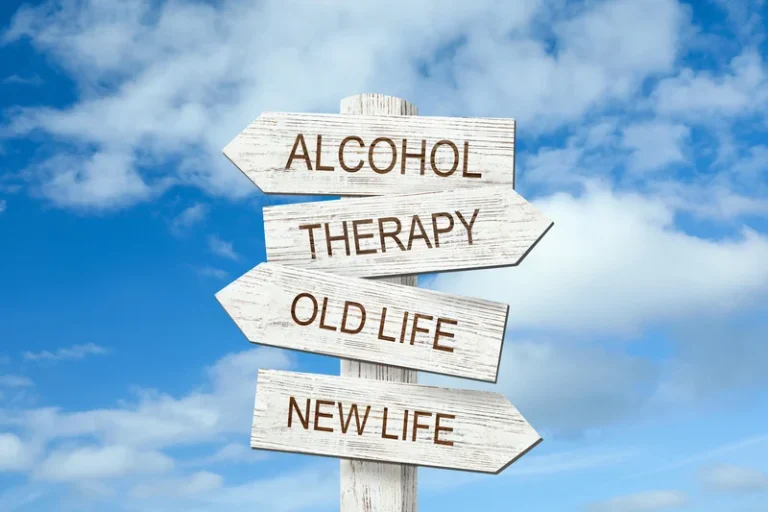
The test is free, confidential, and no personal information is needed to receive the result. Addressing your concerns for a family member, friend, or loved one often feels overwhelming and daunting. On one hand, you want to maintain your relationship; however, you want your loved one to get the help they need. Alcohol interventions have been used to help people confront their substance use problems.
- A thoughtless comment can make the situation more difficult to handle.
- Infinite Recovery offers a range of treatment programs for those suffering from substance abuse.
- Remember to involve the individual in the decision-making process and consider their unique circumstances when choosing a rehab intervention option.
- The sense of community and peer support fosters accountability, lessens feelings of isolation, and supports individuals in deriving healthy coping mechanisms.
- Planning a follow-up is just as critical, be it seeking immediate admission to a treatment facility if the person agrees or deciding on consequences if they refuse.
- An addiction professional will think about what’s going on in your loved one’s life, suggest the best approach, and guide you in what type of treatment and follow-up plan is likely to work best.
Curbing Alcoholism in Older Adults

Keeping alcohol out of reach is important in overcoming alcohol addiction, as it helps eliminate temptations and reduces the risk of relapse. Individuals regain control over their environment and minimize triggers that tempt them to drink by distancing themselves from alcohol. We invite you to share your journey of recovery and be featured on Recovery Connection! Fill out the form below and one of our team members will reach out to help you get started. Join 40,000+ People Who Receive Our Newsletter Get valuable resources on addiction, recovery, wellness, and our treatments delivered directly to your inbox.
Work with an addiction professional
Once you have established the specifics about the intervention including individuals involved and topics to be discussed, it is time to schedule a time and place for the meeting. Realize that an intervention can trigger a wide range of emotions, so prepare yourself for both a good or bad reaction. Because of this, you shouldn’t sit back and wait for the condition to get better on its own. In fact, waiting to intervene can cause more damage to a person’s overall health and wellness.
The Alcoholic Recovery Process

This will https://ecosoberhouse.com/ only cause them to put their guard up and refuse to listen to what is being said. Prior to the intervention, if your loved one has any mental illness or disorder, there’s no help coming from the drugs or alcohol in their system. It can make them horribly irrational, and even lash out verbally, or violently, as stated above.
- For example, if he is worried about who will take care of their kids, you can state that you already have arrangements for childcare.
- However, what’s important is that the individual has a strong support system around them during their rehabilitation.
- Because of this, you shouldn’t sit back and wait for the condition to get better on its own.
- Regardless of the outcome of the intervention, it’s important to be patient.
Step 7: Plan for Moments of Weakness
However, armed with the right information and resources, figuring out how to help an alcoholic is less of an impossible task than it may appear to be. It’s important to remember that this process does not always go smoothly, and there is potential for the individual to say no to treatment. Not all interventions work, and sometimes people are simply not ready to enter treatment.
Our Approach

It is also helpful if they have connections to treatment programs to make the transition process smoother. The Recovery Village Atlanta offers a range of treatment options for someone who has agreed to enter treatment after an alcohol intervention. We can provide residential care, partial hospitalization programming and intensive outpatient services.

Are you covered for treatment? Find out now.
These groups promote accountability, emotional support, and a sense of community, all of which evoke sobriety. In the Membership Survey conducted by Alcoholics Anonymous (2022), 75% of members communicated that they attended an AA meeting virtually, either online or by phone. Adopting a healthier lifestyle refines overall well-being, lessens the risk of alcohol-related illnesses, and sparks mental clarity and emotional stability. The process involves identifying safe spaces or people to confide in and expressing your struggles and goals.
Total abstinence from alcohol is not always the goal of an intervention or treatment process. Some people will be able to learn selective drinking behaviors and remove themselves from an alcohol abuse cycle. However, giving up alcohol for good and accepting a life of sobriety is the only way some people are able to move past addiction. For each person, a team of doctors and therapists will alcohol rehab decide the best course of treatment and the desired outcome. An addiction professional helps figure out the scope of the issue and what treatment options would be right.
These programs accentuate building a support network, forwarding self-awareness, and equipping members with coping mechanisms to handle triggers or cravings effectively. Positive health effects include improved emotional regulation, reduced stress levels, and increased motivation to how to do an intervention for an alcoholic maintain sobriety. Professional interventionists play a crucial role in the intervention process. They can help handle difficult situations, manage resistance and guide the discussion. They also assist in planning the intervention and choosing the best treatment options. Since professional interventionists are trained in understanding addiction and its treatment, they can help the intervention process to be more successful.
Research shows that clear motivation reduces relapse risks and augments treatment results. Alcohol addiction manifests as a compulsive need to drink despite harmful consequences. It disrupts daily routines, causing withdrawal symptoms like anxiety, nausea, and tremors when not drinking. Over time, tolerance develops, requiring larger amounts to achieve the same effect, exacerbating dependence. Emotional challenges, such as guilt and denial, accompany addiction, making it difficult to seek help.